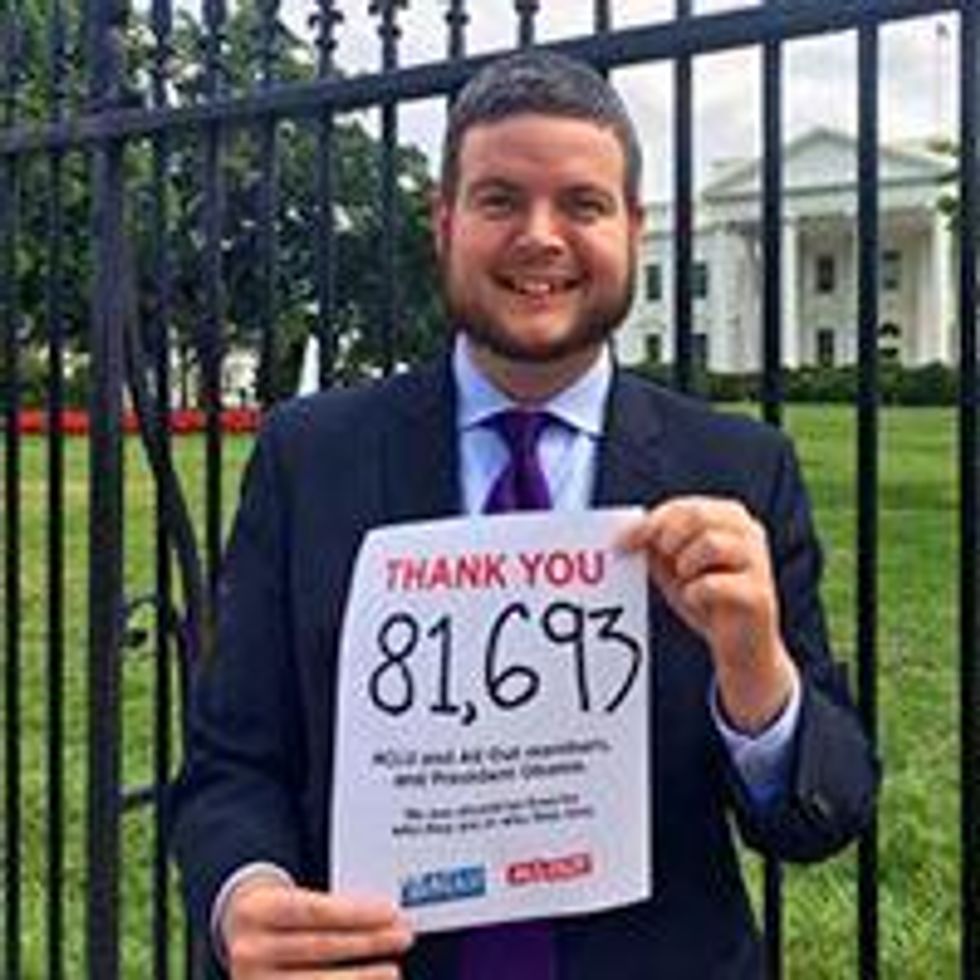Voices
Op-ed: The FDA Needs to Get Over Its Gay Sex Ick Factor
Op-ed: The FDA Needs to Get Over Its Gay Sex Ick Factor

By continuing to use our site, you agree to our Privacy Policy and Terms of Use.
Op-ed: The FDA Needs to Get Over Its Gay Sex Ick Factor
Op-ed: The FDA Needs to Get Over Its Gay Sex Ick Factor

James Costos, the gay man who is U.S. ambassador to Spain, recently posted a picture of himself on Instagram smiling and giving a thumbs-up as he joined other embassy staff in Madrid in donating blood. Back at home in the U.S., however, this picture would have been impossible to take.
At present, any man in this country who has had sexual contact with another man (even one time) since 1977 is barred from donating blood for life. This term -- "men who have sex with men" -- has been broadly defined to sweep in not only all gay and bisexual men but many transgender people of all genders as well. The policy, along with a great deal of fear and misinformation, came about during the height of the U.S. AIDS epidemic.
Last Tuesday the U.S. Food and Drug Administration released draft guidance implementing a change in the lifetime ban to a one-year deferral period. This means gay and bisexual men would be able to donate if their last sexual contact with another man had been at least 365 days earlier. While moving from a lifetime ban to a one-year deferral may sound like a significant change, the reality for the vast majority of gay and bisexual men is that this policy will mean almost nothing. Most will continue to be indefinitely and needlessly barred from being able to donate.
When Ambassador Costos returns to the U.S., he too will be swept into the category of men indefinitely barred from donating blood, since he's been in a committed relationship with his partner for 15 years.
We are now several decades removed from the early, terrifying years of AIDS; our scientific understanding of HIV has dramatically increased. But in too many instances, our public policy has not kept pace with these developments.
So what is Spain doing differently? Spain screens donors, regardless of sexual orientation, based on whether they have engaged in specific high-risk practices. Since HIV is transmitted through activities and not by an individual's identity, the U.S. should also base its deferral policies on activities presenting an elevated risk.

The new policy treats gay sex -- as a categorical matter -- as carrying the same risks as when a heterosexual individual engages in sexual contact with a sex worker or has sex with someone who they know to be living with HIV. There are no exceptions for male same-sex couples who have committed, monogamous relationships where both partners are known to be free of blood-borne diseases.
At the end of the day, this is about more than the ability of an individual to donate blood. After all, there is no constitutional right to be a blood donor. The reason the lifetime ban and the one-year deferral period have rightly been criticized as discriminatory is because they are not grounded in science. Instead, they reflect what can only be described as a continuing perception of an "ick" factor about gay sex by key government health agencies. This stigmatizes and demeans the intimate relationships of gay and bisexual men.
The one-year deferral period cannot be an end point. We must continue to highlight the science to show that the U.S. could safely move to a system that screens prospective blood donors based on their behavioral risk factors, not their identity. There is simply no reason why Ambassador Costos and thousands of men just like him should not be eligible blood donors in this country.

Charlie Kirk DID say stoning gay people was the 'perfect law' — and these other heinous quotes